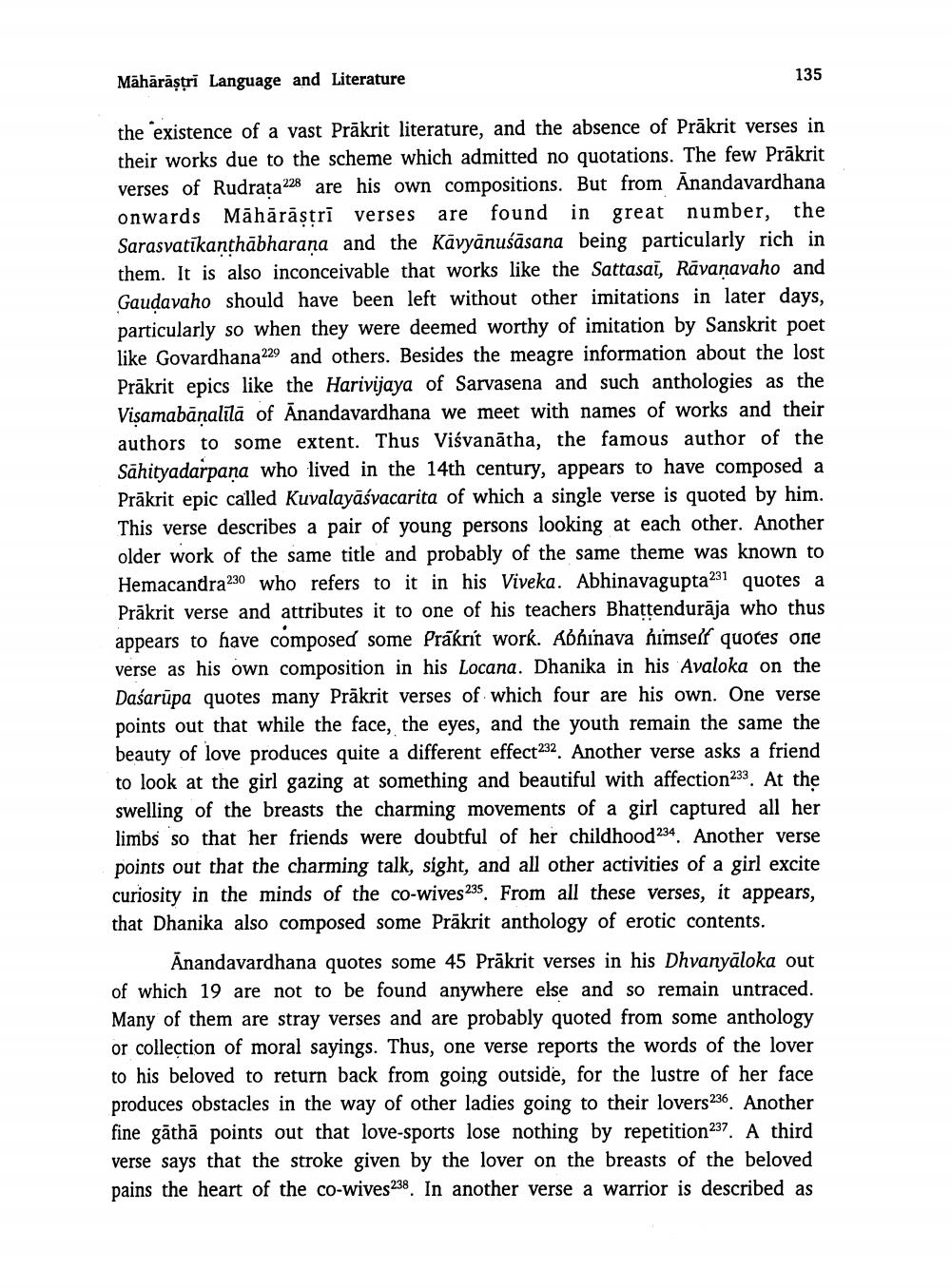________________
Māhārāştri Language and Literature
135
the existence of a vast Prākrit literature, and the absence of Prākrit verses in their works due to the scheme which admitted no quotations. The few Prākrit verses of Rudrata 228 are his own compositions. But from Anandavardhana onwards Māhārāștri verses are found in great number, the Sarasvatikanthābharana and the Kavyānuśāsana being particularly rich in them. It is also inconceivable that works like the Sattasai, Rāvanavaho and Gaudavaho should have been left without other imitations in later days, particularly so when they were deemed worthy of imitation by Sanskrit poet like Govardhana229 and others. Besides the meagre information about the lost Prakrit epics like the Harivijaya of Sarvasena and such anthologies as the Visamabānalīlā of Anandavardhana we meet with names of works and their authors to some extent. Thus Viśvanātha, the famous author of the Sāhityadarpana who lived in the 14th century, appears to have composed a Prākrit epic called Kuvalayāśvacarita of which a single verse is quoted by him. This verse describes a pair of young persons looking at each other. Another older work of the same title and probably of the same theme was known to Hemacandra230 who refers to it in his Viveka. Abhinavagupta231 quotes a Prākrit verse and attributes it to one of his teachers Bhattendurāja who thus appears to have composed some Prakrit work. Abhinava himself quotes one verse as his own composition in his Locana. Dhanika in his Avaloka on the Dasarūpa quotes many Prākrit verses of which four are his own. One verse points out that while the face, the eyes, and the youth remain the same the beauty of love produces quite a different effect232. Another verse asks a friend to look at the girl gazing at something and beautiful with affection233. At the swelling of the breasts the charming movements of a girl captured all her limbs so that her friends were doubtful of her childhood234. Another verse points out that the charming talk, sight, and all other activities of a girl excite curiosity in the minds of the co-wives 235. From all these verses, it appears, that Dhanika also composed some Prākrit anthology of erotic contents.
Anandavardhana quotes some 45 Prakrit verses in his Dhvanyāloka out of which 19 are not to be found anywhere else and so remain untraced. Many of them are stray verses and are probably quoted from some anthology or collection of moral sayings. Thus, one verse reports the words of the lover to his beloved to return back from going outside, for the lustre of her face produces obstacles in the way of other ladies going to their lovers 236. Another fine gāthā points out that love-sports lose nothing by repetition 237. A third verse says that the stroke given by the lover on the breasts of the beloved pains the heart of the co-wives238. In another verse a warrior is described as




